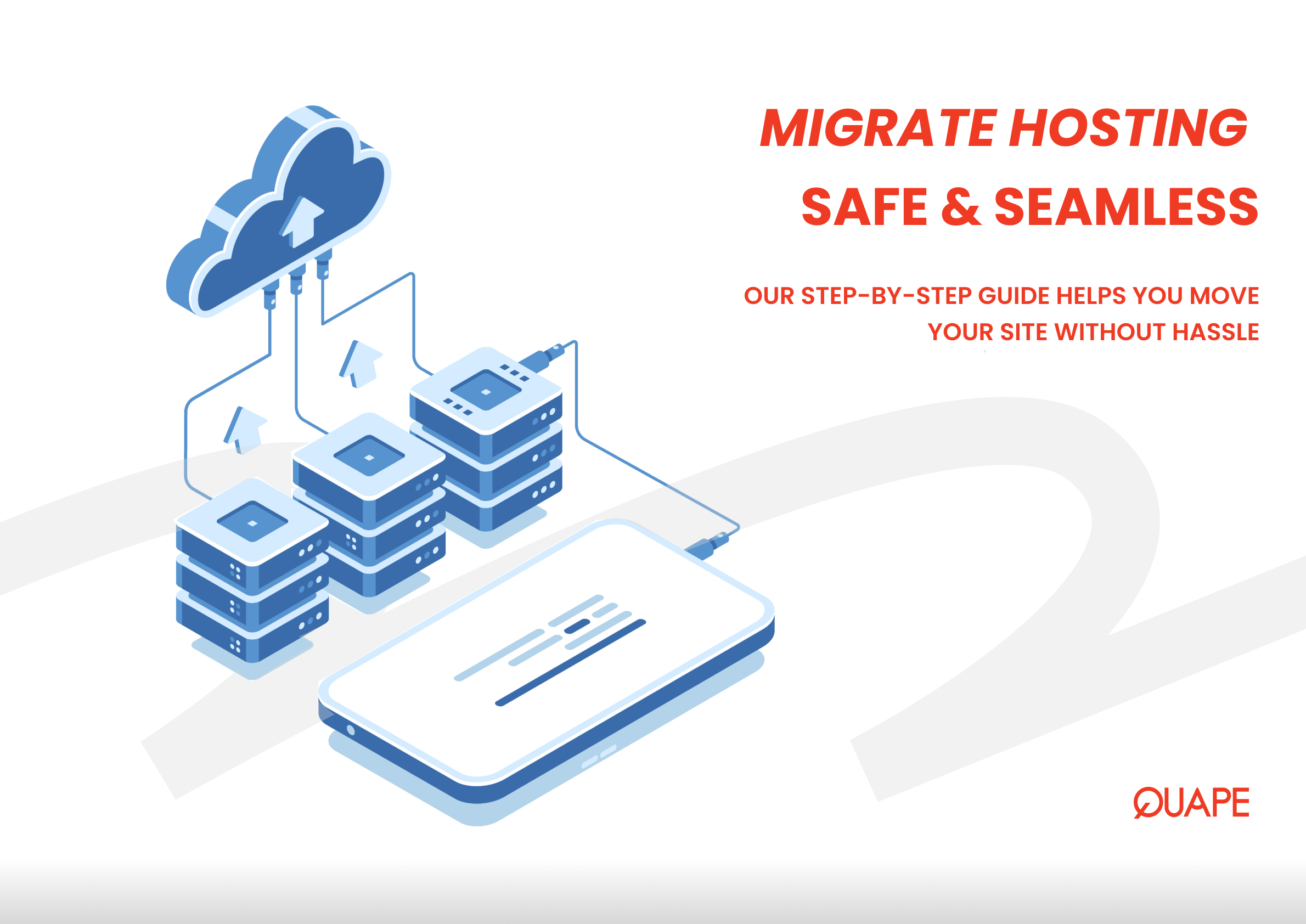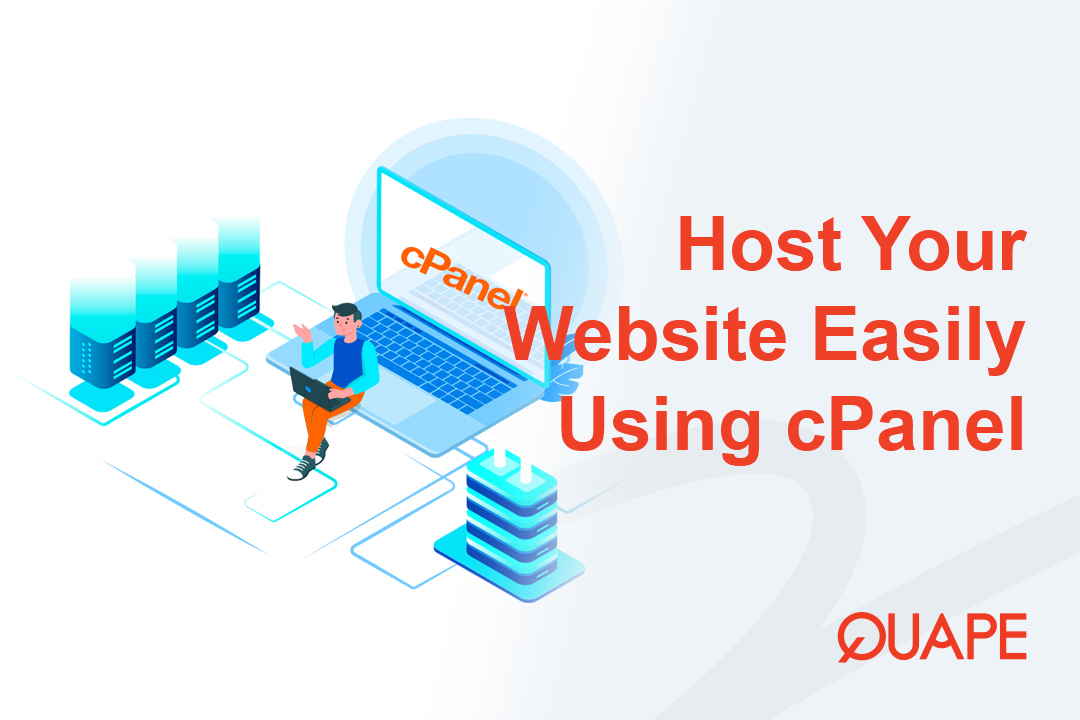Moving your website from one hosting provider to another can feel like a daunting task. You might worry about downtime, losing data, or breaking your site. The good news is that with a clear plan, migrating your website is a straightforward process that can be completed with minimal risk and no downtime. Whether you’re moving for better performance, more reliable support, or a more affordable plan, this step-by-step guide will walk you through how to migrate from old hosting to new hosting easily, ensuring a smooth transition and a successful launch on your new server.
Table of Contents
TogglePre-Migration Checklist: What You’ll Need
Before you begin, gather all the necessary information and tools to make the process as seamless as possible.
- New Hosting Account: Make sure you have an active account with your new hosting provider (e.g., Quape).
- Domain Name Access: You need access to your domain registrar’s account (e.g., GoDaddy, Namecheap) to change your DNS settings later.
- Old Hosting Credentials: Your cPanel, FTP, and database login details for your old hosting account.
- FTP Client: A tool like FileZilla to transfer files.
- A Backup Plan: Ensure you have a full backup of your website’s files and database before you start.
Step-by-Step Migrate from Old Hosting to New Hosting

Step 1: Backup Your Website Files
The first and most critical step is to create a full backup of your website.
- From cPanel:
- Log in to your old hosting cPanel.
- Navigate to the “Backup” or “Backup Wizard” tool.
- Choose to download a “Full Backup” of your site. This will create a
.ziparchive containing all your website files and databases. - Download the backup file to your local computer.
- Via FTP:
- Alternatively, you can use an FTP client to download all files from your website’s root directory (typically
public_html). - This method is slower but gives you direct access to your files.
- Alternatively, you can use an FTP client to download all files from your website’s root directory (typically
Step 2: Backup Your Database
If your website is dynamic (e.g., a WordPress site, e-commerce store, or forum), its content is stored in a database. You need to back this up separately.
- From cPanel:
- In your old hosting cPanel, go to “phpMyAdmin” under the “Databases” section.
- In phpMyAdmin, select your website’s database from the left-hand sidebar.
- Click the “Export” tab at the top.
- Select the “Quick” export method and the “SQL” format, then click “Go.”
- The
.sqlfile will download to your computer.
- Tip: If you have multiple databases, make sure you download the correct one associated with your website. Check your website’s configuration file (e.g.,
wp-config.phpfor WordPress) to find the database name.
Step 3: Upload Your Files to the New Hosting
Now it’s time to transfer your website to its new home.
- Log in to Your New Hosting: Access your new hosting account’s cPanel or control panel.
- Use File Manager:
- Go to File Manager and navigate to your website’s root directory (
public_html). - Use the “Upload” button to upload the
.zipfile of your website backup that you created in Step 1.
- Go to File Manager and navigate to your website’s root directory (
- Extract the Files: Once the upload is complete, right-click the
.zipfile and select “Extract.” Choose thepublic_htmlfolder as the destination. This will unpack all your website files. - Note: If you are migrating a specific application, like WordPress, many hosting providers offer a one-click migration tool or a managed migration service. This can simplify the process even further.
Step 4: Create a New Database and Import the Backup
Your website needs its database to be functional on the new server.
- Create a New Database:
- In your new cPanel, go to MySQL® Databases.
- Create a new database and a new user.
- Assign the new user to the new database with “ALL PRIVILEGES.”
- Crucially, note down the new database name, username, and password.
- Import the Database:
- Go to phpMyAdmin in your new cPanel.
- Select the new database you just created from the left-hand menu.
- Click on the “Import” tab at the top.
- Click “Choose File,” select the
.sqlfile you downloaded in Step 2, and click “Go.”
Step 5: Update Your Website’s Configuration File
Your website is now on the new server, but it’s still “looking” for the old database. You need to update its configuration file to point to the new one.
- Find the Configuration File:
- Go back to File Manager in your new cPanel.
- Locate your website’s configuration file (e.g.,
wp-config.phpfor WordPress,application/config/database.phpfor CodeIgniter).
- Edit the File:
- Right-click the file and select “Edit.”
- Find the lines that define your database name, username, and password.
- Replace the old credentials with the new ones you created in Step 4.
- Save the changes.
Step 6: Change Your Domain’s DNS Records
This is the final step where you tell the world that your website has a new home.
- Find Your New Hosting’s Nameservers: Your new hosting provider (e.g., Quape) will have sent you an email with your new nameservers (e.g.,
ns1.quape.com,ns2.quape.com). - Log in to Your Domain Registrar: Go to your domain registrar’s website and log in to your account.
- Update Nameservers:
- Find the DNS Management or Nameserver section for your domain.
- Replace your old nameservers with the new ones from your new hosting provider.
- Save the changes.
Important: DNS changes can take up to 24-48 hours to fully propagate across the internet. During this period, some visitors may still be directed to your old site, while others will be sent to the new one. To avoid seeing a broken site, it’s best not to delete your old hosting account until propagation is complete.
Conclusion
Migrating your website from one host to another doesn’t have to be a stressful experience. By following these steps—from creating a full backup to updating your DNS records—you can ensure a secure, fast, and seamless transition. Taking control of your website’s migration gives you the confidence to move to a hosting provider that better serves your needs.
Looking for a new home for your website with a smooth migration process? Quape, a leading web hosting and domain company in Singapore, provides reliable and high-performance hosting solutions. Whether you’re moving a personal blog or a business website, Quape offers the tools, support, and infrastructure you need for a successful migration and a fast, secure website. Explore Quape’s hosting plans today!
- How to Activate Let’s Encrypt SSL in cPanel - October 17, 2025
- How to Host a Website Using cPanel Easily - October 16, 2025
- Tips to Manage Hosting Space Effectively Using cPanel - October 15, 2025




